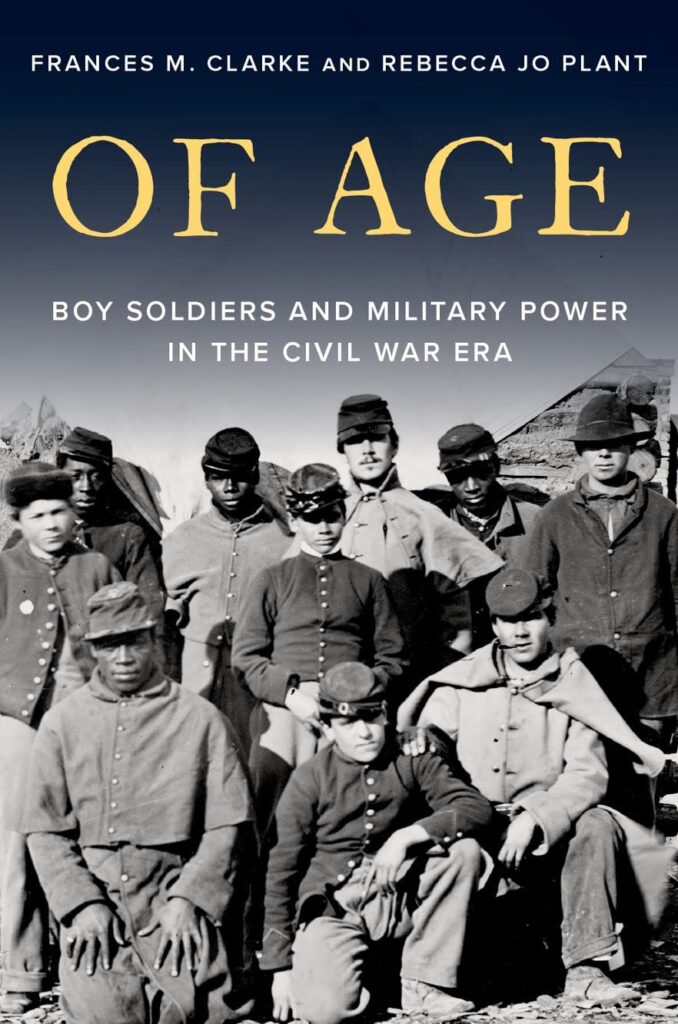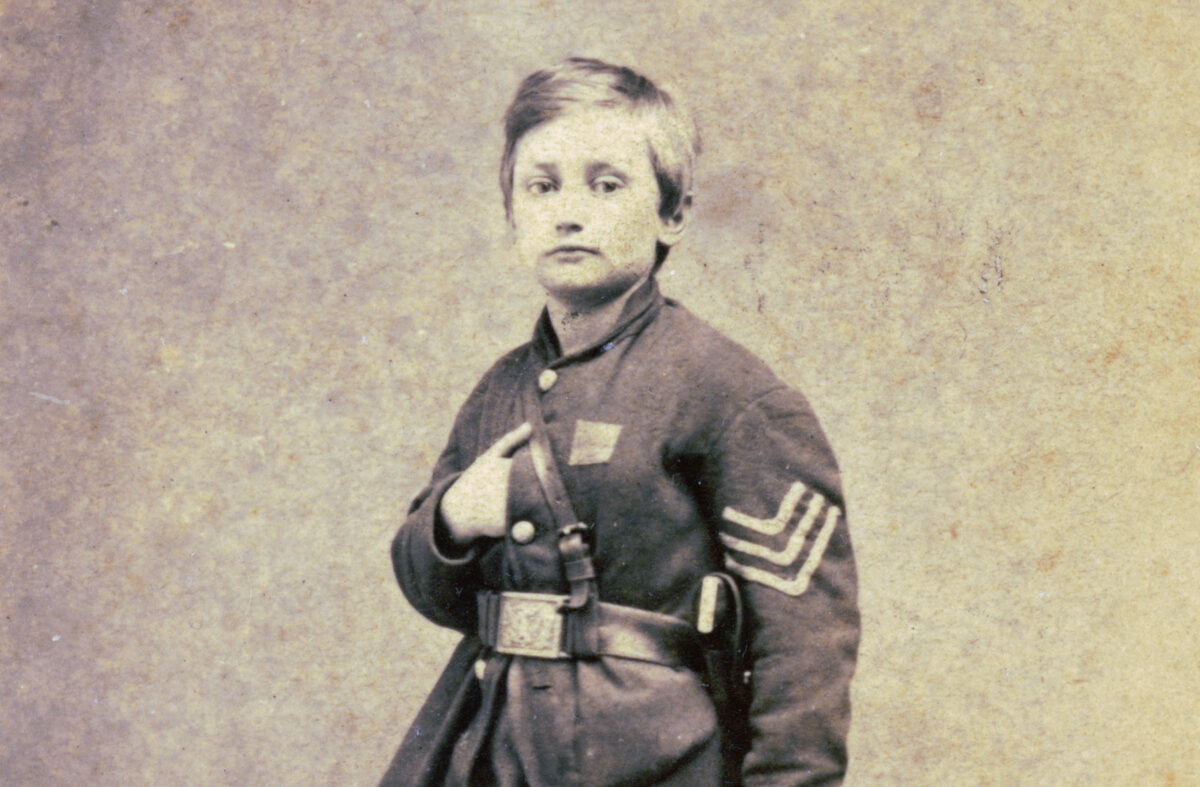In 1861, 9-year-old John Clem ran away from home and joined the Union Army, serving as a drummer boy in the 22nd Michigan Infantry. That much is known for sure. After that, the historical record becomes murky, as the legend of “Johnny Shiloh” overshadowed the truth.
In fact, Clem was never at Shiloh because his unit wasn’t mustered into service until months after the bloody battle. In addition, his birth name was Klem. How and why it changed, no one seems to know.
When it comes to writing about underage boys serving in the Civil War, separating fact from fiction is a tall order. Historians Frances M. Clarke and Rebecca Jo Plant have slashed through the fog of war to present a data-driven document that is both enlightening and unnerving in detailing the incredible numbers of youth who marched off to war in a divided country.
Of Age: Boy Soldiers and Military Power in the Civil War Era dispels the myths and dives deep into the hard reality of how both sides ignored minimum enlistment ages and admitted countless boys into military service. By their reckoning, the authors determined that at least 10 percent of Union troops were under the legal age of 21 (later 18 with an act of Congress)—far higher than the 1.6 percent estimated by previous historians. Confederate numbers were likely just as high, though more difficult to confirm due to a lack of records.

Of Age
Boy Soldiers and Military Power in the Civil War Era
By Frances M. Clarke and Rebecca Jo Plant
Oxford University Press, 2023
If you buy something through our site, we might earn a commission.
In a scholarly report, the book provides often disturbing insight into a society that gave little regard to the welfare of these young soldiers, often refusing to return underage recruits to distraught parents after proof of minority was established. In the North, the suspension of habeas corpus presented Union officers with the added excuse they needed to ignore family pleas.
Of Age: Boy Soldiers and Military Power in the Civil War Era is filled with accounts of teens on both sides who heroically answered the call of duty and the tragedy of so many who met their fate on the battlefield or succumbed to the rigors of a military life that was wholly unsuited to young minds and bodies. It is a thorough history with detailed analysis of statistics, conditions, norms, and legal precedence of the day.
This eye-opening examination of a power struggle to maintain enlistment levels demonstrates the cost in terms of morality and human rights. While a savage war challenged the values of all members of society, it particularly assaulted the innocence of American youth for the sake of victory at all costs. The physical and psychological impact of war on boy soldiers—both North and South—altered a wounded society’s view of the age of consent for combat.






